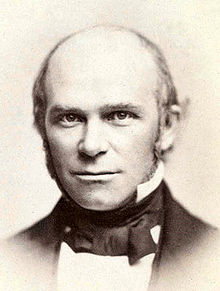 |
| Theodore Parker (1810-1860) |
Theodore Parker’s preaching career spoke to many topics, most of which were lost on his critics who only heard one thing: Rev. Parker denies the miracles. This is the tradition we inherit. It is the ground from which we grow. It doesn't have to be the mud in which we are stuck, for the tradition we inherit also includes an older wisdom concerning the miracle of abundance and community.
“To everything there is a season, and a time to every purpose under heaven.” (Ecclesiastes)There was a time for hard-nosed denial of the miraculous. And there is a time for rediscovering and reclaiming that older wisdom. I’m talking about the kind of miracle of abundance in and through community that the Quaker writer Parker Palmer spoke of:
 |
| Parker Palmer (b. 1939) |
"Daily I am astonished at how readily I believe that something I need is in short supply. If I hoard possessions, it is because I believe that there are not enough to go around. If I struggle with others over power, it is because I believe that power is limited. If I become jealous in relationships, it is because I believe that when you get too much love, I will be short-changed. The irony, often tragic, is that by embracing the scarcity assumption, we create the very scarcities we fear. If I hoard material goods, others will have too little and I will never have enough. If I fight my way up the ladder of power, others will be defeated, and I will never feel secure. If I get jealous of someone I love, I am likely to drive that person away. We create scarcity by fearfully accepting it as law and by competing with others for resources as if we were stranded in the Sahara at the last oasis. In the human world, abundance does not happen automatically. It is created when we have the sense to choose community, to come together to celebrate and share our common store. Whether the scarce resource is money or love or power or words, the true law of life is that we generate more of whatever seems scarce by trusting its supply and passing it around. Authentic abundance does not lie in secured stockpiles of food or cash or influence or affection but in belonging to a community where we can give those goods to others who need them—and receive them from others when we are in need. Here is a summertime truth: abundance is a communal act, the joint creation of an incredibly complex ecology in which each part functions on behalf of the whole, and in return, is sustained by the whole. Community doesn’t just create abundance—community is abundance.” (Palmer, Let Your Life Speak)Yes, the “true law of life,” is this miracle “that we generate more of whatever seems scarce by trusting its supply and passing it around.” Expand the circle, and it will be full.
 |
| Thomas Jefferson (1743-1826) |
“I Have Sworn Upon the Altar of God eternal hostility against every form of tyranny over the mind of man."They served the cause of human freedom in their times by calling our attention, instead, to Jesus’ ethics and teachings.
One generation’s liberation, however, can become a subsequent generation’s chains. If we throw out the story of the loaves and the fishes, we forego the lesson it teaches of the “natural” miracle of abundance.
* * *
This is part 1 of 5 of "Myths of Scarcity"
Next: Part 2: "Interruptions"

No comments:
Post a Comment